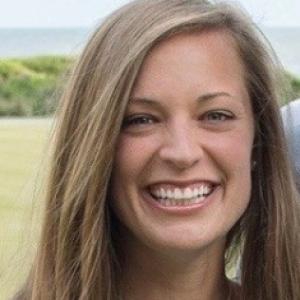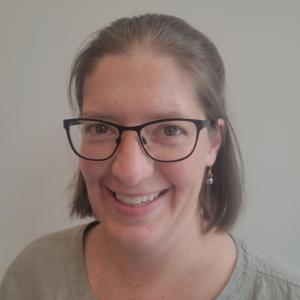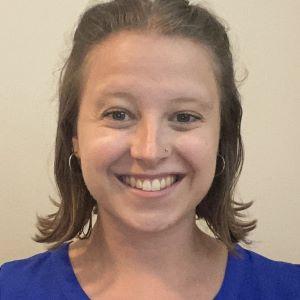Southwell Lab
Our research group seeks to improve the treatment of neurologic diseases and injuries. We study the development and function of neurons, one of the cellular components of brain circuits, as well as the neural signals that brain circuits produce. We are examining how neuronal cellular dysfunction and abnormal brain activity patterns are related, and how they reflect and contribute to pathophysiology. We apply this knowledge to the development of cell- and device-based therapies that correct or compensate for cellular and circuit-level processes underlying neurologic disease and injury.
Cortical interneuron development and function
Inhibitory neurotransmission in the cerebral cortex mediated in part by a diverse, local population of GABAergic interneurons. Cortical interneurons are produced outside the cortex during prenatal stages, and their integration into cortical circuits is set by interactions between cell-intrinsic developmental programs and early activity in their cortical environment. We are interested in how these genetic and physiologic factors establish the early integration and long-term functional identities of cortical interneuron sub-populations. We are also exploring how various classes of interneurons differentially contribute to patterns of brain activity and behavior.
Interneuron dysfunction in neurologic disease
The dysfunction of interneurons has been implicated in conditions such as stroke, brain tumors, epilepsy, schizophrenia and autism. We are examining how congenital and acquired disturbances of interneuron function alter neural circuit function and contribute to disease and injury phenotypes. We are interested in characterizing the physiologic signatures of interneuron dysfunction, with the aim of identifying biomarkers that can be used to diagnose interneuron pathophysiology and assess its response to therapeutic interventions.
Translational development of cortical interneuron transplantation
Following transplantation, embryonic cortical interneuron precursors have been found to disperse, survive, and differentiate in the postnatal and adult nervous systems. Transplanted interneurons increase recipient measures of synaptic inhibition and elicit experience-dependent plasticity, and they modify behavioral phenotypes in models of disease and injury. We are further exploring therapeutic applications of interneuron transplantation in pre-clinical settings. We are focused on identifying and overcoming technical barriers that may limit potential human clinical applications, such as the generation of donor cells, the integration of transplanted cells into complex human brain structures, and recipient immune reactivity to transplanted populations.
Human neurophysiology
Surgical treatments for epilepsy, movement disorders and psychiatric illnesses frequently involve the implantation of intracranial electrode arrays. These devices record brain activity at high temporal and spatial resolutions, thereby enabling neurophysiologic studies of human brain signals. With collaborators in the Departments of Biomedical Engineering, Psychiatry, and Neurology, we are studying the organization and functional properties of human brain circuits in neurosurgical patients. These studies aim to identify neural circuit abnormalities that underlie neuropsychiatric conditions, and to improve upon devices used for the recording and therapeutic modulation of brain activity.
Lab Members
Southwell Publications
Selected Publications
Breshears JD, Southwell DG, Chang EF. Inhibition of manual movements at speech arrest sites in the posterior inferior frontal lobe. Neurosurgery (2018).
Southwell DG*, Hervey-Jumper SL*, Perry DW, Berger MS. Intraoperative mapping during repeat awake craniotomy reveals the functional plasticity of adult cortex. Journal of Neurosurgery (2016). * Equal contributions
Southwell DG, Nicholas CR, Basbaum AI, Stryker MP, Kriegstein AR, Rubenstein JL, Alvarez-Buylla A. Interneurons from embryonic development to cell-based therapy. Science (2014).
Nicholas CR, Chen J, Tang Y, Southwell DG, Chalmers N, Vogt D, Arnold CM, Chen YJ, Stanley EG, Elefanty AG, Sasai Y, Alvarez-Buylla A, Rubenstein JL, Kriegstein AR. Functional maturation of hPSC-derived forebrain interneurons requires an extended timeline and mimics human neural development. Cell Stem Cell (2013).
Southwell DG, Paredes MF, Galvao RP, Jones DL, Froemke RC, Sebe JY, Alfaro-Cervello C, Tang Y, Garcia-Verdugo J, Rubenstein JL, Baraban SC, Alvarez-Buylla A. Intrinsically determined cell death of developing cortical interneurons. Nature (2012).
Southwell DG, Froemke RC, Alvarez-Buylla A, Stryker MP, Gandhi SP. Cortical plasticity induced by inhibitory neuron transplantation. Science (2010).
Baraban SC, Southwell DG, Estrada RC, Jones DL, Sebe JY, Alfaro-Cervello C, Garcia-Verdugo JM, Rubenstein JL, Alvarez-Buylla A. Reduction of seizures by transplantation of cortical GABAergic neuron precursors into Kv1.1 mutant mice. Proceedings of the National Academy of Sciences (2009).
Southwell Open Positions
Postdoctoral researchers, staff scientists and graduate students are invited to join our research group.
Please send your CV and a description of your background/interests to derek.southwell@duke.edu.



